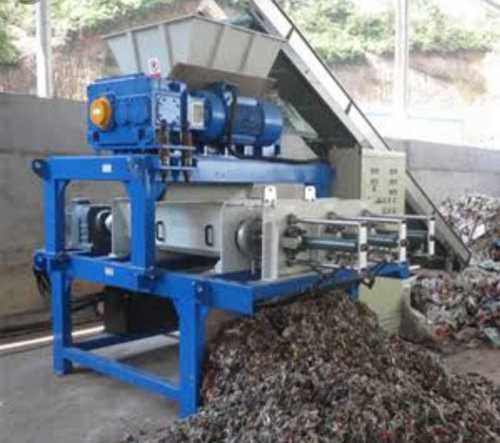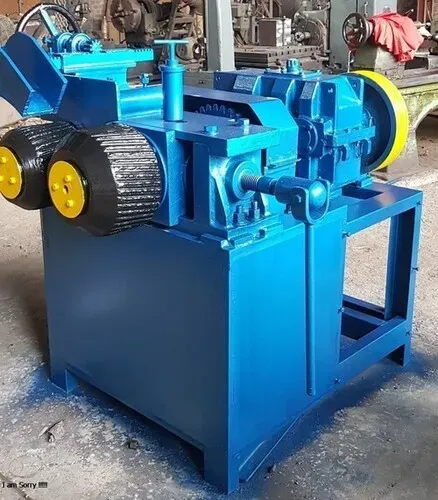Importance and Applications of Agricultural Shredder in Farming Industry

Agricultural shredder serves a major purpose in the farming industry, efficiently disposing of the various kinds of farm wastes including crop residues, organic waste, etc. Processed waste is an excellent compost for improving soil fertility producing great yield. Moreover, the machine facilitates waste reduction, and composting, and promotes sustainable farming. Agricultural shredders can do much more aside from just shredding crops, which includes mulching, composting, animal feed preparation, and even contributing to biofuel production. This robust machine with all the qualities and applications has become indispensable for the farming industry.
Reasons Why Agricultural Shredders Are Needed
Efficient Waste Management
Agricultural shredders help dispose of the crop residues remaining after the harvesting process including the leaves, stalks, stems, and more. The machine helps break down the pile of such wastes into smaller or more manageable pieces that are incapable of cluttering the fields. Moreover, the volume of agricultural waste is decreased to pieces, it becomes convenient to deal with it. Their packaging and transportation become easier for effective disposal.
Soil Health Improvement
Shredder machines used in farming industries facilitate the composting process, as they dispose of agricultural waste in smaller, more uniform pieces. The composting process enhances the soil quality by enhancing its fertility and structure by injecting essential nutrients. Another important soil improvement process is known as mulching, also facilitated by agricultural shredder. As the machine shreds the farm waste, the shredded material is further used for mulch, which offers various benefits including rich moisture, weed suppression, and maintaining adequate soil temperature. All over, both these processes effectively improve soil health for substantial yield.
Cost and Labor Efficiency
Agricultural shredders save money and time, the two most important factors for businesses to operate efficiently. Eliminating the manual labor work for shredding and disposing of farm waste, the shredder saves labor costs and additional time, which can be used for other essential tasks. Aside from this, the shredding machine also benefits the farmers by saving costs on purchasing resources for various applications including animal feed, biofuel, etc. Also, the farmers will recover the initial investment cost with savings in long-term operations.
Enhanced Crop Management
Agricultural Shredder machines extract the residues from crops which may contain harmful substances like pests and diseases. This helps crops to have healthy growth and offers the farmers a higher yield. With enhanced crop management, shredder machines become indispensable for the farming industry. Aside from this, farmers can also utilize this machine for preparing the fields for the next seasons, as it efficiently cleans debris and crop residues conveniently.
Environmental Benefits
In many agricultural practices, crop residues are often burned, leading to air pollution and loss of valuable organic matter. Shredders provide an alternative by enabling the use of residues in more environmentally friendly ways. Using agricultural shredders promotes sustainable farming practices by recycling organic waste back into the farming system, reducing reliance on synthetic fertilizers, and supporting biodiversity.
Versatility and Adaptability
Agricultural shredders are versatile and can handle various types of organic material, including crop residues, prunings, and even animal manure. This adaptability makes them valuable tools for diverse farming operations. Shredders come in various sizes and capacities, from small handheld models for garden use to large industrial machines for extensive agricultural operations. This range ensures that farms of all sizes can find a shredder that meets their specific needs.
Applications For Which Agricultural Shredders Are Hired
Crop Residue Management
Agricultural shredders efficiently process crop residues such as stalks, leaves, and stems after harvesting, turning them into smaller, manageable pieces. Shredding crop residues can also reduce the risk of pest infestations and disease outbreaks by removing the habitats where pests and pathogens thrive.
Mulching
Shredders convert crop residues, prunings, and other organic materials into mulch, which helps retain soil moisture, suppress weeds, and regulate soil temperature. As mulch decomposes, it adds organic matter to the soil, improving soil structure and fertility.
Composting
Shredded organic materials decompose faster and more evenly, making them ideal for composting. The smaller particle size increases the surface area for microbial activity, speeding up the composting process. The resulting compost is rich in nutrients, which can be used to enhance soil health and support plant growth.
Animal Feed Preparation
Shredders can process crop residues and other plant materials into nutritious animal feed, which is particularly useful for livestock farming. This helps reduce the costs associated with purchasing commercial animal feed by utilizing farm-grown materials.
Biofuel Production
Agricultural shredders can process organic waste into biomass, which can be used for biofuel production. This includes plant residues, wood chips, and other organic materials. Biofuels produced from shredded biomass are a renewable energy source, contributing to sustainable farming practices and reducing dependence on fossil fuels.
Soil Preparation
Shredders help clear fields of old crops, weeds, and other debris, preparing the land for the next planting season. This makes tilling and planting more efficient and effective. By breaking down plant material and incorporating it into the soil, shredders can also improve soil aeration and water infiltration.
Orchard and Vineyard Management
In orchards and vineyards, agricultural shredders process prunings and other plant waste, helping maintain the health of trees and vines by preventing the spread of diseases. Shredded prunings can also be used as soil amendments, adding organic matter and improving soil health.
Horticulture and Landscaping
Shredders process garden waste, including leaves, branches, and trimmings, reducing the volume of waste and creating useful mulch or compost for gardens. In landscaping, shredders help manage plant debris and create mulch for pathways, flower beds, and other areas.
Waste Reduction and Recycling
By shredding organic waste, farmers can significantly reduce the volume of waste sent to landfills, supporting waste reduction and recycling efforts. Shredded materials can be repurposed for various uses, such as soil amendments, animal bedding, and biofuel, contributing to a circular economy.
Various Types of Agricultural Shredders Available
Handheld Shredders
Handheld shredders are small, portable, and easy to handle and maneuver. They are ideal for minor tasks such as garden maintenance, small-scale composting, and shredding plant trimmings. Their lightweight and easy-to-use design makes them suitable for small farms or home gardens.
Tractor-Mounted Shredders
Tractor-mounted shredders are larger and attach to farm tractors, powered by the tractor's engine. They are suitable for more extensive agricultural tasks, including shredding crop residues, prunings in orchards and vineyards, and preparing fields for the next planting season. These shredders offer higher capacity and power, making them efficient for medium to large farms and versatile for different types of organic material.
Industrial Shredders
Industrial shredders are high-capacity machines designed for large-scale farming operations and commercial use. They are used for extensive crop residue management, large-scale composting, biomass production for biofuels, and processing large volumes of organic waste. These shredders are extremely powerful, capable of handling large volumes of material, durable, and efficient for industrial farming applications.
How to Choose a High-Quality Agricultural Shredder For Yourself?
Follow these points to choose the right one:
- Assess Your Farm's Needs: Determine the scale and type of tasks (e.g., mulching, composting, residue management) you need the shredder to perform.
- Consider Shredder Type: Choose between handheld, tractor-mounted, or industrial shredders based on the size of your farm and workload.
- Check Power and Capacity: Ensure the shredder has sufficient power and capacity to handle the volume and type of material you will process.
- Evaluate Durability and Build Quality: Look for robust construction and reliable materials that can withstand regular, heavy use.
- Review Features and Ease of Maintenance: Opt for shredders with user-friendly features, easy maintenance, and readily available spare parts.
Explore More:


